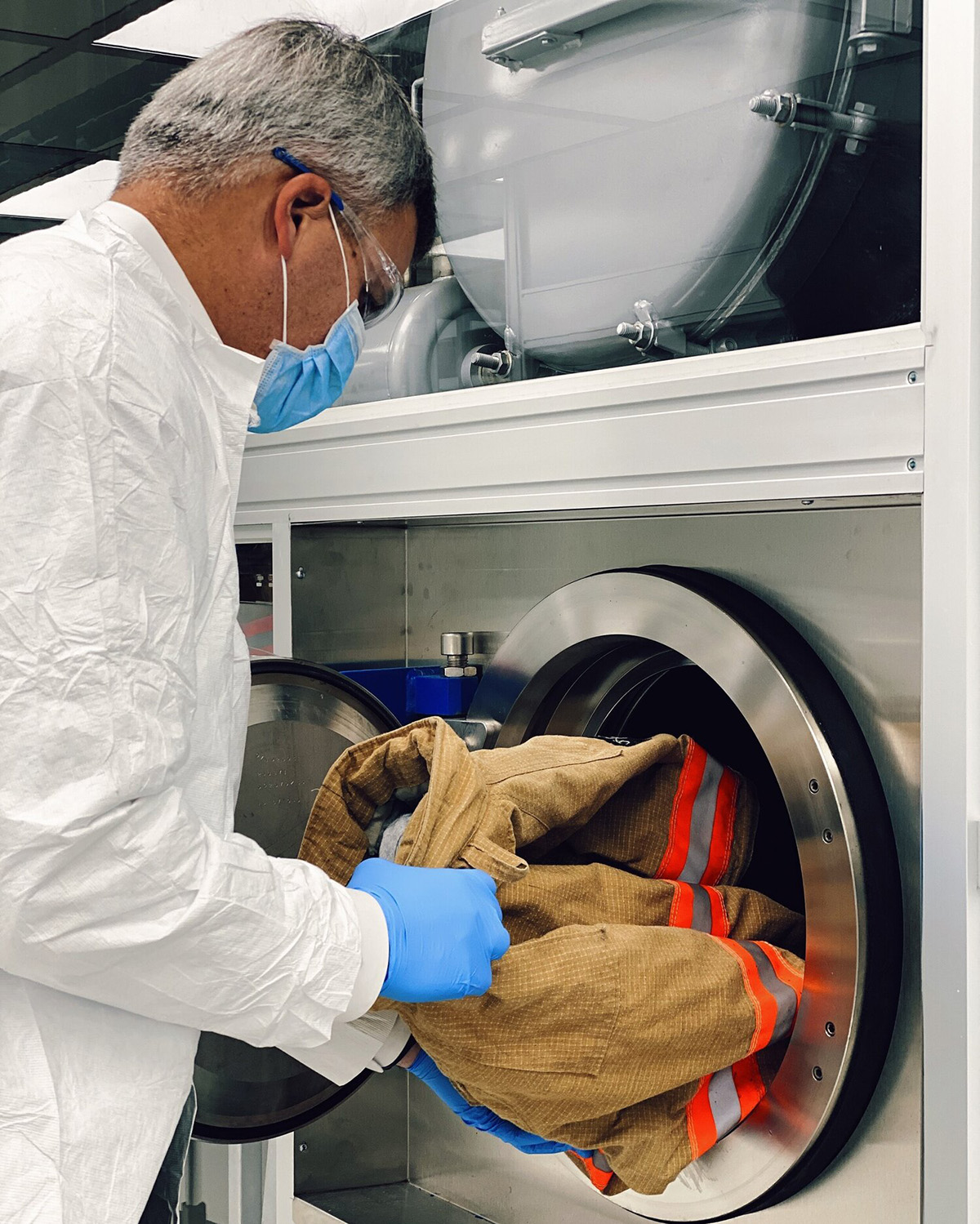Blog
Filter Categories
All
Blog
News
Sort By Date
-
 What Fire Departments Need to Know About Turnout Gear Repairs: Q&A with ETD’s Sewing & Repair TeamFebruary 18, 2026What Fire Departments Need to Know About Turnout Gear Repairs:...BlogBy: ETD Sewing & Repair Team At Emergency Technical Decon, repairing firefighter turnout gear isn’t just about sewing; it’s about safety....
What Fire Departments Need to Know About Turnout Gear Repairs: Q&A with ETD’s Sewing & Repair TeamFebruary 18, 2026What Fire Departments Need to Know About Turnout Gear Repairs:...BlogBy: ETD Sewing & Repair Team At Emergency Technical Decon, repairing firefighter turnout gear isn’t just about sewing; it’s about safety.... -
 BlogBy: ETD Team Each February, the second week marks National Burn Awareness Week, a time to raise awareness around one of...
BlogBy: ETD Team Each February, the second week marks National Burn Awareness Week, a time to raise awareness around one of... -
 American Heart Month: Protecting the Heart of the Fire ServiceFebruary 4, 2026American Heart Month: Protecting the Heart of the Fire ServiceBlogBy: ETD Team February marks American Heart Month: a time to raise awareness about cardiovascular health, especially among those at increased...
American Heart Month: Protecting the Heart of the Fire ServiceFebruary 4, 2026American Heart Month: Protecting the Heart of the Fire ServiceBlogBy: ETD Team February marks American Heart Month: a time to raise awareness about cardiovascular health, especially among those at increased...
Lorem ipsum dolor sit amet, consectetur adipiscing elit, sed do eiusmod tempor incididunt ut labore et dolore magna aliqua. Ut enim ad minim veniam, quis nostrud exercitation ullamco.
What Fire Departments Need to Know About Turnout Gear Repairs: Q&A with ETD’s Sewing & Repair Team
By: ETD Sewing & Repair Team At Emergency Technical Decon, repairing firefighter turnout gear isn’t just about sewing; it’s about safety. Our in-house team of technicians is trained to uphold the highest standards of NFPA 1851 compliance, making sure every repaired item is field-ready, reliable, and safe to wear. Here’s what departments often ask about gear repairs, and how our...
Recognizing National Burn Awareness Week
By: ETD Team Each February, the second week marks National Burn Awareness Week, a time to raise awareness around one of the most painful and life-altering injuries anyone can face. For the fire service, this week is also a powerful reminder: burns don’t just happen on the fireground—they can happen during overhaul, in the station, or even through contaminated gear...
American Heart Month: Protecting the Heart of the Fire Service
By: ETD Team February marks American Heart Month: a time to raise awareness about cardiovascular health, especially among those at increased risk. For firefighters, that risk is alarmingly high. Cardiovascular events remain the leading cause of on-duty deaths in the fire service, accounting for nearly 45% of all firefighter fatalities in the U.S. Factors like intense physical exertion, extreme heat...
Routine Decon Best Practices
Fireground contaminants do not stay on the fireground. Soot, VOCs, PFAS and other toxins travel with firefighters long after the call is over, settling into gear, truck cabs, seats, tools, personal vehicles and common areas inside the station. Over time, this creates continuous exposure risks for crews, families and community spaces. Routine decontamination is no longer limited to turnout coats...
New Year, Same Gear: Year-Round Turnout Gear Cleaning Matters
A new year always brings a renewed focus on health, readiness and operational safety. For firefighters, that commitment extends far beyond fitness goals or training priorities, because the gear you wear every shift carries the invisible weight of every fire you have fought. No matter how new your calendar is, your turnout gear still holds the residue, toxins and exposures...
What Happens After the Fire: The Hidden Spread of Contamination Revealed by Blacklight
Firefighters are trained to face danger head-on, but some of the greatest risks can’t be seen with the naked eye. The very gear that protects them in extreme environments can become a vehicle for toxic exposure long after the flames are out. A powerful new training video produced by the Sylvester Comprehensive Cancer Center’s Firefighter Cancer Initiative reveals just how...
Firefighter Cancer Awareness Month: Prevention Is All Year
Every January, Cancer Awareness Month shines a spotlight on a growing crisis: cancer remains the leading cause of firefighter line-of-duty deaths. Departments across the country use this month to highlight prevention practices, share survivor stories, and reinforce the need for early detection. But while January serves as an annual call to action, the threat firefighters face doesn’t follow a calendar,...
Why Robust Decon Records Matter More Than Ever
Earlier this year in April, the National Firefighter Cancer Registry, once a beacon of hope for tracking long-term cancer incidence among firefighters, was temporarily shut down. Designed to collect critical exposure data and analyze cancer trends in the fire service, the registry aims to give departments, researchers, and policymakers a clearer understanding of the occupational risks firefighters face every day....
The Fireground Has Changed; So Must Our Approach To Cancer Prevention
By: Chief Brian Fennessy, Jeffery Stull, President of International Personal Protection, Inc. and Ret. Chief Mike Duyck Firefighter cancer risk, contaminated PPE, and exposure accountability are no longer abstract conversations. They’re operational realities facing departments every day. In a recent Fire Engineering article, Chief Fennessey and Mike Duyck of Emergency Technical Decon sit down to address why decontamination practices must...
New PFAS Laws & Gear Regulations in 2025–2026: What Fire Departments Need to Know
Throughout 2024 and 2025, multiple states took landmark action to restrict PFAS — the “forever chemicals” long used in firefighter turnout gear for water and heat resistance. Two of the earliest adopters, Massachusetts and Connecticut, banned PFAS‑treated fire gear. The law prohibits the manufacture or sale of gear containing intentionally added PFAS. In August 2025, Illinois passed the Deputy Chief...



